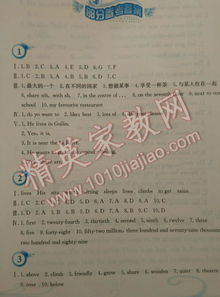假期翻译英文翻译
Title: Translating Chinese Holidays into English
Chinese holidays, rich in cultural significance and tradition, offer a glimpse into the country's history and values. Translating these holidays into English requires a delicate balance of linguistic accuracy and cultural understanding. Let's explore some common Chinese holidays and their English translations:
1.
春节 (Chūnjié) Spring Festival / Chinese New Year:
The most significant holiday in Chinese culture, celebrating the beginning of the lunar new year. "Spring Festival" or "Chinese New Year" aptly captures the essence of this joyous occasion marked by family reunions, feasting, and colorful festivities.

2.
清明节 (Qīngmíng Jié) Tomb Sweeping Day:
A day to honor ancestors by cleaning their graves and making offerings. "Tomb Sweeping Day" succinctly conveys the custom of paying respects to the deceased.
3.
端午节 (Duānwǔ Jié) Dragon Boat Festival:
Commemorating the poet Qu Yuan, this festival features dragon boat races and the consumption of zongzi (sticky rice dumplings). "Dragon Boat Festival" vividly describes the event's highlights.
4.
中秋节 (Zhōngqiū Jié) MidAutumn Festival / Moon Festival:
Celebrated on the 15th day of the eighth lunar month, this holiday is synonymous with mooncakes, family gatherings, and appreciating the full moon's beauty. Both "MidAutumn Festival" and "Moon Festival" accurately depict the festival's focus on lunar worship and harvest celebrations.
5.
国庆节 (Guóqìng Jié) National Day:
Marks the founding of the People's Republic of China on October 1st, with grand ceremonies and patriotic displays across the country. "National Day" denotes the celebration of China's sovereignty and unity.
6.
元宵节 (Yuánxiāo Jié) Lantern Festival:
The culmination of the Spring Festival celebrations, featuring colorful lantern displays, lion dances, and the eating of tangyuan (sweet rice balls). "Lantern Festival" accurately portrays the event's emphasis on illuminated lanterns and community gatherings.
7.
重阳节 (Chóngyáng Jié) Double Ninth Festival / Chongyang Festival:
An occasion to pay respects to the elderly and enjoy chrysanthemum flowers. "Double Ninth Festival" or "Chongyang Festival" highlights the festival's association with the ninth day of the ninth lunar month.
8.
腊八节 (Làbā Jié) Laba Festival:
Observed on the eighth day of the twelfth lunar month, featuring the consumption of Laba congee and various activities to welcome the upcoming new year. "Laba Festival" denotes the festival's culinary traditions and auspicious significance.
These translations not only convey the names of the holidays but also encapsulate the cultural essence and practices associated with each celebration. Whether it's the vibrancy of Spring Festival or the solemnity of Tomb Sweeping Day, these English equivalents provide a glimpse into China's rich cultural tapestry.











